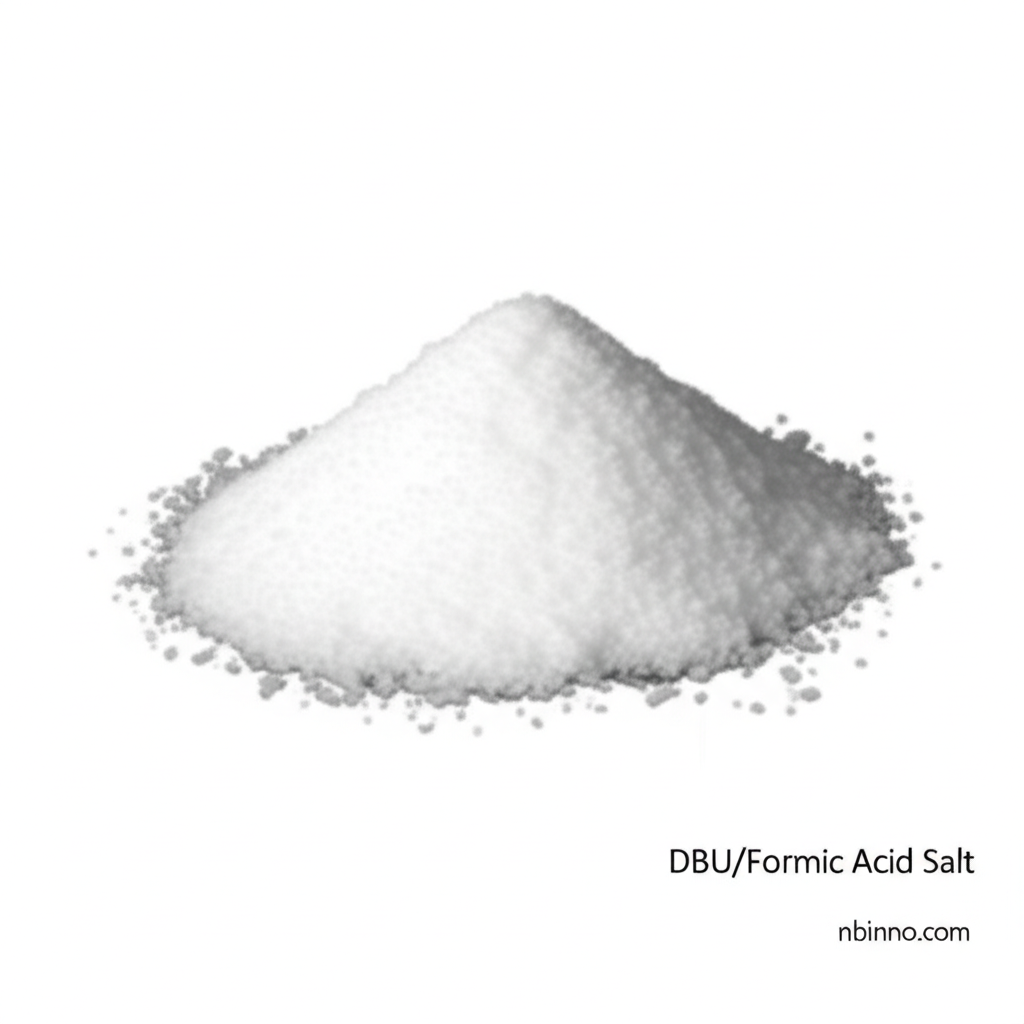DBU/Formic Acid Salt: Your Catalyst for Advanced Polyurethane Adhesives
Discover the key chemical intermediate enabling superior performance in adhesive formulations.
Get a Quote & SampleProduct Core Value

DBU/Formic Acid Salt
As a leading chemical intermediate, DBU/Formic Acid Salt (CAS 51301-55-4) is essential for enhancing the performance of polyurethane adhesives. Its high purity and consistent quality ensure reliable results in critical applications. This white powder is a testament to advanced chemical manufacturing, designed to meet stringent industry standards.
- Unlock superior adhesive strength by leveraging our DBU/Formic Acid Salt as a catalyst for polyurethane adhesive applications.
- Source high-purity DBU Formic Acid Salt with an assay of ≥98.00% to guarantee optimal catalytic activity.
- Benefit from flexible packaging options, including 1kg bags or custom solutions, to suit your production needs when you buy DBU Formic Acid Salt.
- Ensure product integrity through proper storage in a ventilated, low-temperature dry environment, vital for maintaining the quality of this chemical intermediate.
Key Advantages
Enhanced Catalytic Activity
This DBU Formic Acid Salt offers exceptional catalytic properties, crucial for optimizing polyurethane adhesive cure times and bond strength, a key benefit for users seeking efficient polyurethane adhesive catalyst solutions.
Superior Purity Standard
With a quality standard of 98% minimum assay, this fine chemical intermediate provides the reliability and consistency needed for demanding industrial processes. Achieving this high purity is a cornerstone of our commitment.
Versatile Application Potential
Beyond its primary role, the DBU Formic Acid Salt's properties suggest broader utility within the fine chemicals sector, making it a valuable component for various chemical synthesis pathways.
Key Applications
Polyurethane Adhesives
As a highly effective catalyst, DBU/Formic Acid Salt accelerates the curing process of polyurethane adhesives, ensuring strong and durable bonds in various manufacturing sectors.
Polymer Chemistry
This compound serves as a critical intermediate in polymer chemistry, facilitating advanced material synthesis and modification, crucial for developing next-generation polymers.
Fine Chemical Synthesis
Its well-defined chemical structure and high purity make it a valuable reagent in the synthesis of other specialized fine chemicals, supporting innovation across the industry.
Chemical Intermediates
The compound functions as a vital chemical intermediate, bridging basic raw materials to more complex end products, thereby playing a key role in the chemical supply chain.
